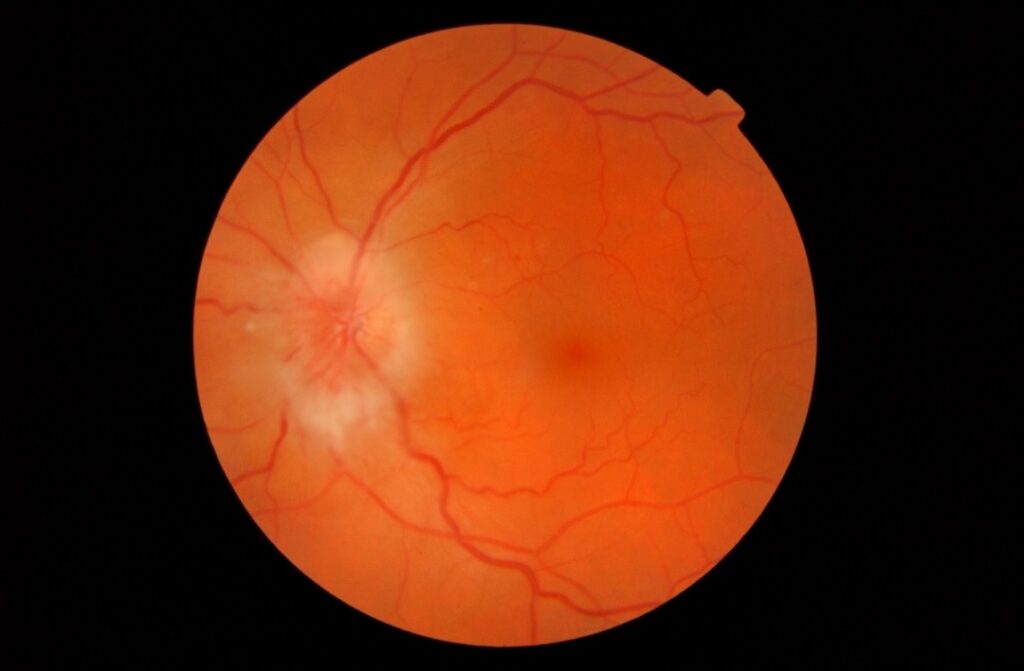The optic nerve is the connection between the eye and the brain. It is responsible for transmitting the visual signal from the eye to the visual centres of the brain. Each optic nerve carries approximately 1 million nerve fibres.
Damage to the optic nerve can come from a number of sources, inflammation, a blocked artery, high or low blood pressure, glaucoma, stretching of the nerve, trauma or compression.
Cupping (Glaucoma)
See glaucoma above
Optic Neuropathy
An optic neuropathy is a condition where the optic nerve that connects the eye to the brain is damaged. This can occur for a number of reasons. The commonest condition is called anterior ischaemic optic neuropathy (AION). This is a blocked blood vessel that supplies the visible part of the optic nerve. When this becomes blocked, the nerve bleeds and swells, and the vision is noticeably worse. This condition is treated as an ophthalmic emergency, and we like to examine the eye straight away to determine the diagnosis and cause.
What are the symptoms of AION?
The symptoms are of rapid loss of vision in the affected eye. The pupil can become poorly responsive, the colour vision, particularly the red vision can be affected, so that car brake lights appear grey. The field of vision or peripheral vision can be affected, as can the visual acuity (distance and reading vision).

A swollen optic nerve. The usually clear demarcation between nerve and retina is blurred with white cotton wool spots and fine flame haemorrhages.
What is the treatment of AION?
The most important part of the management of AION is diagnosing any underlying cause. The most important condition to look for is ‘giant cell arteritis’ (GCA). This is an inflammatory condition of the arteries whereby the wall of the arteries swell, occluding the lumen of the vessel. A simple blood test for this can be done in clinic, known as ‘erythrocyte sedimentation rate’ and the results known within an hour. If it is arteritis then there is a very high risk that the other eye may become involved imminently. To prevent blindness in both eyes high dose oral steroids need to be given immediately. If GCA has been rulled out then most of the other causes of NAION can be excluded after careful history, examination, and routine blood tests. Depending of the severity of damage to the optic nerve, not all of the vision may recover.
